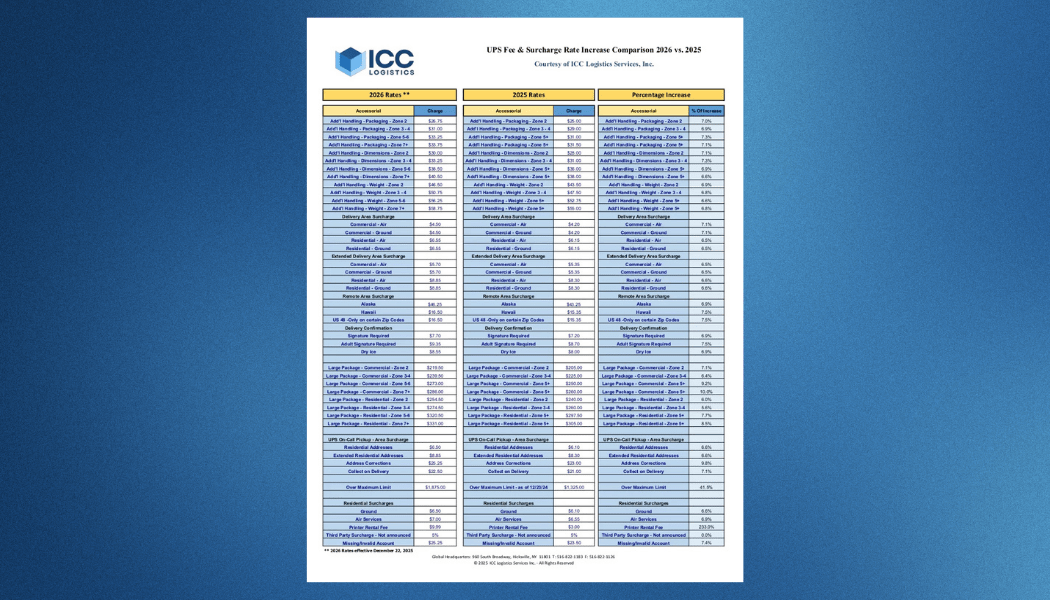Most freight audits are built for everyday shipments. They check rates, look for the usual errors, and move on, but specialized freight doesn’t move like normal freight — and it shouldn’t be audited like it either.
Oversized machinery, temperature-controlled pharmaceuticals, hazmat, high-value medical devices, project cargo… these loads come with their own rules, requirements, and ways carriers can get billing wrong. If you treat them like standard freight, you end up paying for things you shouldn’t — and a lot of it slips through unnoticed.
That’s where tailored audits matter.
WHAT MAKES SPECIALIZED FREIGHT DIFFERENT
Specialized freight has extra layers: unique equipment, tighter regulations, custom packaging, route limitations, escort vehicles, refrigeration, certifications, insurance requirements, and penalties if anything falls outside spec.
Every layer creates more chances for billing mistakes — or overcharges hidden in line items that no generic audit ever checks.
Examples we see daily:
- Temperature-control charges outside contracted tolerances
- Escort fees are billed twice or billed at the wrong bracket
- Misapplied hazmat fees
- Incorrect dimensional weight calculations
- “Special handling” charges that don’t match the service performed
- Penalties tacked on after delivery
These errors add up fast. And if your audit process isn’t built for this level of detail, they never get caught.
WHERE STANDARD FREIGHT AUDITS FALL SHORT
Most freight audits are built around matching a rate to a contract. That’s fine for basic LTL or parcel, but specialized freight needs more than rate-matching — it needs context.
A standard audit usually can’t tell you:
- Whether the temperature actually stayed within the required range
- If the escort charges line up with the route
- Whether the carrier used the correct equipment
- If the hazmat classification matches the paperwork
- Whether insurance charges match the cargo value
- If the dimensional weight rules were applied correctly
- Whether fees match the specific service level your team requires
Invoices get approved even when something is off… and with specialized freight, “something is off” is often expensive.
HOW A TAILORED AUDIT ACTUALLY WORKS
A specialized audit looks at the shipment the way your operations team does — not just the invoice. It checks:
Mode-specific billing:
Flatbeds, reefers, step-decks, air freight, project cargo — each moves differently and bills differently.
Service-level requirements:
Did the carrier do exactly what the load required?
Temperature holds, secure chain-of-custody, certified drivers, restricted routes — it all matters.
Regulatory and documentation accuracy:
DOT, FDA, EPA, hazmat paperwork, certifications — one mismatch can create big charges.
Benchmarking + pattern detection:
We compare similar loads, historical patterns, and industry norms to catch the outliers.
At ICC, we combine fifty years of freight experience with analytics and human review. That mix catches issues automated systems alone miss — especially on complex loads with lots of moving parts.
Every specialized shipment has its own fingerprint.
We make sure the invoice matches it.
WHAT WE FIND IN SPECIALIZED FREIGHT AUDITS (REAL-WORLD EXAMPLES)
Common issues our team uncovers:
- Undisclosed accessorials slipped in after delivery
- Temperature-control surcharges outside contracted tolerances
- Incorrect hazmat classifications or unnecessary hazmat fees
- Duplicate escort or pilot-car charges
- Dimensional weight inconsistencies between carriers
- “Fragile” or “special handling” fees added despite full compliance
- Billing is tied to the wrong piece of equipment
Most of these don’t show up in a standard audit — but they hit budgets hard.
A good audit doesn’t just dispute the charge; it tells you why it happened and how to prevent it next time.
HOW TO CHOOSE THE RIGHT AUDIT PARTNER
If you move specialized freight, your audit partner needs to understand more than invoices.
Look for:
- Experience with your modes (project cargo, hazmat, reefer, air, ocean, etc.)
- Tools built for complex loads (rules-based and human review)
- Strong regulatory knowledge
- Transparent reporting
- Proven cost recovery in specialized freight categories
ICC’s approach blends tech with deep logistics experience. We don’t just flag errors — we help you stop them from happening again.
FAQ
What counts as specialized freight?
Anything that requires unique handling, equipment, or strict compliance: oversized machinery, pharmaceuticals, hazmat, high-value goods, etc.
Why can’t standard audits catch these errors?
Because they’re built for basic rating checks — not the operational details that drive specialized freight costs.
Do general audits ever catch issues in these loads?
Sometimes, but not consistently. They miss the contextual errors — the ones that cost the most.
What are the biggest risks?
Misapplied fees, wrong classifications, incorrect equipment charges, duplicate accessorials, temperature violations, and incorrect dim-weight rules.
Do specialized audits really save money?
Yes. The errors are less obvious but much higher impact. Correcting them — and preventing them — drives meaningful savings.
Specialized freight is expensive because it’s complicated. Your audit process should match that level of detail.
A tailored audit protects your budget, strengthens compliance, and gives you a clear view of what you’re actually paying for — and why.
ICC makes sure every charge is accurate, justified, and aligned with how the shipment really moved.
Because if the load isn’t standard, the audit shouldn’t be either.



 to receive our FREE white papers:
to receive our FREE white papers: